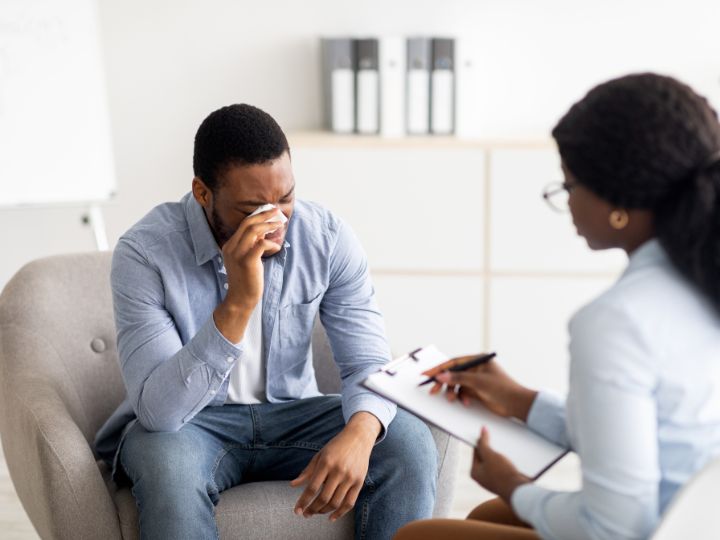Depression is a serious mental health condition that affects millions of men worldwide. Despite its prevalence, male depression often goes unrecognized and untreated due to societal stigma and the reluctance of many men to seek help. This article aims to shed light on the unique challenges men face when dealing with depression and provide guidance on how to overcome them.
What is Male Depression?
Male depression is a mental health disorder characterized by persistent feelings of sadness, hopelessness, and a loss of interest in activities. While the core symptoms of depression are similar in men and women, men may experience and express their symptoms differently.
Signs and Symptoms of Depression in Men
Men with depression may exhibit the following signs and symptoms:
- Irritability and anger
- Fatigue and sleep disturbances
- Difficulty concentrating and making decisions
- Increased alcohol or drug use
- Withdrawal from social activities
- Physical symptoms such as headaches or digestive problems
- Thoughts of suicide or self-harm
Triggers for Depression in Men
Several factors can contribute to the development of depression in men, including:
- Stressful life events, such as job loss or relationship problems
- Chronic health conditions
- Trauma or abuse
- Genetic predisposition
- Substance abuse
Getting Help for Male Depression
Overcoming depression requires a combination of self-help strategies and professional treatment. The following tips can help men manage their symptoms and improve their overall well-being.
Tip 1: Seek social support
Reaching out to friends, family, or support groups can provide a sense of connection and help men feel less alone in their struggle with depression.
Tip 2: Support your health
Engaging in self-care activities, such as getting enough sleep, practicing relaxation techniques, and avoiding alcohol and drugs, can help improve mood and reduce symptoms of depression.
Tip 3: Exercise for greater mental and physical health
Regular physical activity has been shown to boost mood, reduce stress, and improve overall health. Aim for at least 30 minutes of moderate exercise most days of the week.
Tip 4: Eat a healthy diet to improve how you feel
A balanced diet rich in fruits, vegetables, whole grains, and lean proteins can help support mental health and improve overall well-being.
Tip 5: Challenge negative thinking
Depression often involves negative thought patterns that can perpetuate feelings of hopelessness and low self-esteem. Learning to recognize and challenge these thoughts can help break the cycle of depression.
Professional Treatment for Depression in Men
In addition to self-help strategies, professional treatment is often necessary to effectively manage depression. Treatment options may include:
- Psychotherapy, such as cognitive-behavioral therapy (CBT) or interpersonal therapy (IPT)
- Antidepressant medication
- Combination of therapy and medication
How to Help a Man with Depression
If you know a man struggling with depression, there are several ways you can offer support:
- Encourage him to seek professional help
- Listen without judgment and offer emotional support
- Help him engage in self-care activities and healthy lifestyle choices
- Educate yourself about depression to better understand his experience
- Be patient and understanding, as recovery takes time
By raising awareness about male depression and promoting open conversations about mental health, we can help men overcome the stigma associated with seeking help and encourage them to prioritize their emotional well-being.



